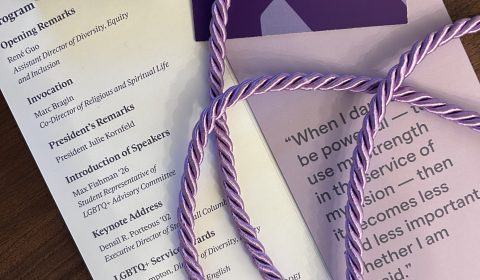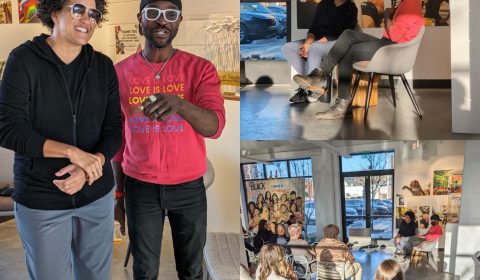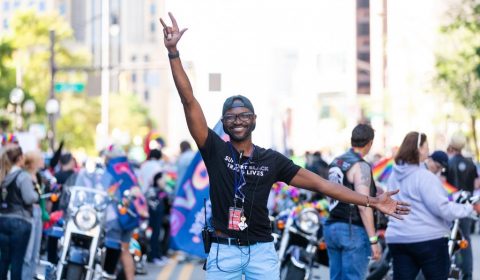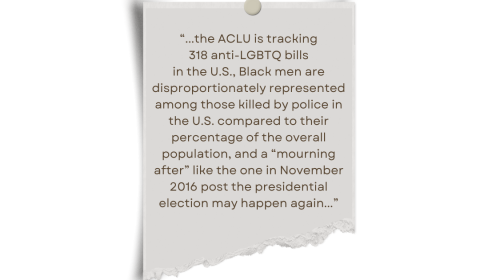Bayard Rustin, a prominent civil rights activist and openly gay man, once said, ‘We need, in every community, a group of angelic troublemakers.’ As a Black queer person doing social justice work for the queer community, I strive to be one of those angelic troublemakers. By being visible and vocal in my advocacy, I hope to inspire others in both the Black and queer communities to stand up and fight for what is right. When we work together to address issues of inequality and discrimination, we can create a world where everyone is seen, valued, and thriving.
As a Black queer person, I am acutely aware of the importance of representation and the impact it has on both the queer and Black communities. When I entered the world of social justice work, I quickly realized that there was a lack of representation of people who looked like me. That’s why I feel it is so important to be visible and actively doing this work.
When we see Black queer people like myself doing social justice work for the queer community, it sends a message to both communities that we are here, we are invested, and we are fighting for change. It is vital that we are visible, not just for the sake of representation, but because it helps to break down barriers and stereotypes that exist in both communities.
For the queer community, seeing Black queer people doing this work helps to combat the notion that the queer community is predominantly white. It helps to broaden the conversation, highlight intersectionality, and push for more inclusive policies and practices. It also shows that the fight for LGBTQ+ rights is not just a white issue, but one that affects people of all races and backgrounds.
For the Black community, it is equally important to see Black queer people doing social justice work. Historically, Black LGBTQ+ individuals have faced marginalization and exclusion within the Black community. By being visible and actively doing this work, we can help to bridge the divide and work towards more inclusive and accepting spaces for all Black people.
In short, seeing a Black queer person doing social justice work benefits both the queer and Black communities. It helps to break down barriers, combat stereotypes, and push for more inclusive policies and practices. We need to continue to amplify the voices and visibility of Black queer people in social justice work and create spaces that welcome and support all individuals, regardless of their race or sexuality.








